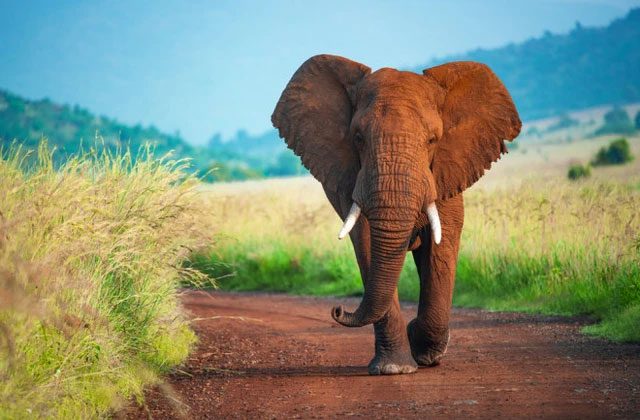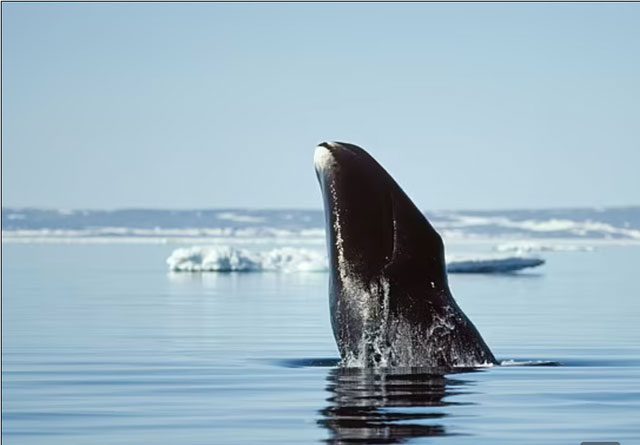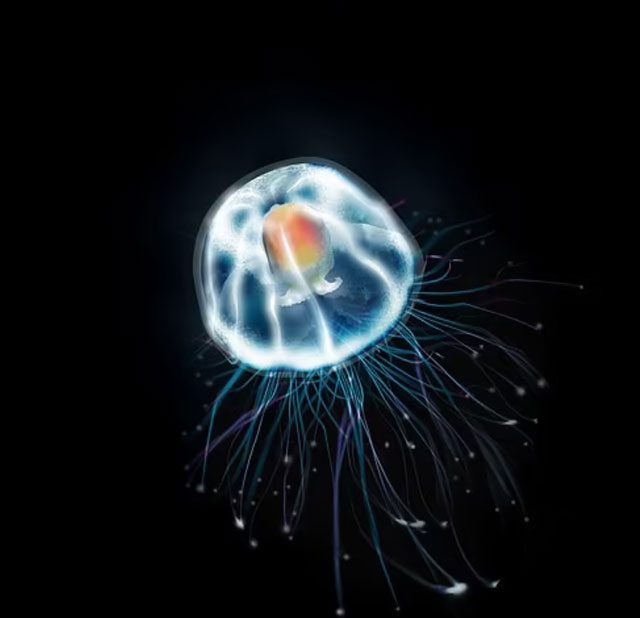Scientists believe that within the next decade, they will discover methods to help humans remain youthful indefinitely, even achieving… immortality.
This statement comes from researchers at the University of Cambridge in the UK. According to them, the solution lies with elephants, whales, and the “immortal jellyfish.”
These animals not only have long lifespans but are also nearly “immune” to cancer. The key to their longevity seems to be their ability to self-repair damage in their DNA. The aforementioned group of scientists is studying how to replicate these abilities and “transfer” them to humans.
The Daily Mail reports that human DNA gradually deteriorates due to harmful factors in life, including UV rays from the sun, pollutants emitted from vehicles and industries, and even charred food…
DNA damage accumulates into gene mutations and ultimately leads to diseases as well as aging. If DNA can self-repair damages, this process could be halted, according to studies on these animals.

Elephants have a low cancer rate. (Photo: Timmy V Photography).
“This is an exciting time to research aging. I think we can start interventions against aging within the next decade,” researcher Delphine Larrieu stated to Cambridge Independent.
Many scientists are focusing on studying large mammals such as elephants and whales. Both of these “giant” species possess special genes that help resist cancer and repair damaged DNA.
Humans also have the p53 gene, but we only have 2 copies, while elephants possess up to 20. Scientists believe this is why the estimated cancer mortality rate in elephants is only about 4.8%. In humans, this rate ranges from 11% to 25%.

The Greenland whale can live up to 200 years. (Photo: Alamy).
In whales, they have 2.4 times more tumor-suppressing genes. If whales had the same cancer rate per cell as humans, with millions of trillions of cells, they wouldn’t even survive to one year old.
“This indicates that whales must have a more effective anti-cancer mechanism than humans. It’s likely that what helps them age slowly—many live to 200 years—also reduces their cancer incidence,” argues Alex Cagan, a gene expert at the University of Cambridge.
For example, the Greenland whale (also known as the bowhead whale) does not eliminate cancer cells like the p53 gene; instead, it produces proteins that repair damages in its DNA strands—according to a study published on bioRxiv last August.
While elephants and whales may provide a pathway toward human disease prevention, the “immortal jellyfish” has the ability to completely reverse the aging process. When threatened by predators, the jellyfish activates its “superpower” to transform itself into a cyst on the ocean floor. Once the danger passes, this remarkable creature… matures back to its original form.

The immortal jellyfish can revert back to the larval stage. (Photo: Alamy)
Thanks to its aforementioned “superpower,” the jellyfish can repair damaged genes and revert to earlier developmental stages. Even after becoming “mature” sexually, the immortal jellyfish can still “transform” back into a larva.
According to researchers, the “immortal jellyfish” is the only jellyfish species capable of “returning to its youth,” achieving biological immortality.
However, DNA repair is not the only longevity strategy that humans can learn from animals. A recently published study from Tohoku University and the University of Tokyo in Japan revealed that a tiny jellyfish species in the Pacific can regrow lost body parts, and scientists have precisely grasped their secret.
Named Cladonema pacificum, this jellyfish, no bigger than a fingernail, can regrow its tentacles within three days. Normal cells at the injury site are supported by specially evolved stem cells; these two cell types continuously “regenerate” the severed tentacles.
Scientists hope that these unique cells will help unlock regenerative capabilities in humans—also a valuable “seed” for research on anti-aging and immortality.



















































